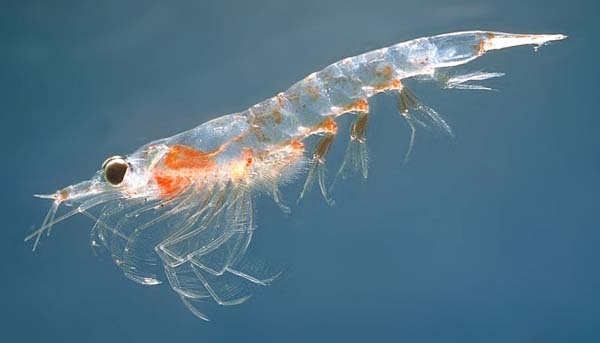Krill oil poised for breakthrough in 2012
Whole Foods Market's reversal of their sales ban on krill oil removes one of the drags on growth for the category. Here's why the ingredient is ready to take center stage.

The krill oil sector has been buffeted by contrary currents in recent weeks. The black cloud of the Whole Foods Market ban seems to be lifting. But the outcome of the krill wars—the patent reexamination requests and the infringement lawsuits—still looms on the horizon.
Whole Foods has reversed itself on the subject of krill. The heavyweight retailer removed krill oil products from its shelves in 2009 over sustainability concerns. Now the company says it is not stocking the products because customers aren’t asking for them.
“Despite the fact that some krill oil has been certified by MSC, Whole Foods does not currently sell krill oil supplements because it has not had any indication of meaningful demand for them, especially given the wide range of products the company already offers that deliver omega-3 fatty acids including fish oil, flaxseed oil, and algae-based dietary supplements,” the company said in a statement.
Oslo, Norway-based Aker BioMarine, the world’s foremost harvester of krill in the Southern Ocean, has been touting its sustainability bona fides for several years. The company, which is the only vertically integrated krill supplier, entered into a partnership several years ago with the Norway chapter of the World Wildlife Fund to improve the environmental footprint of its krill harvesting operations.
One result of the partnership was Aker’s decision to go through the expensive process of obtaining certification by the Marine Stewardship Council. Aker, which currently brings in about half of the world’s krill catch, is the only krill harvester to have cleared this bar.
Despite the crowded market for omega-3 products, there still is a prominent place on the shelf for krill, according to Eric Anderson, Aker’s vice president for sales in North America. In krill oil, the DHA and EPA molecules are bound to a phospholipid backbone, in contrast to the triglyceride form of fish oil. A significant percentage of those consumers who have tried fish oil have problems digesting the supplements and found the process unpleasant enough that they abandoned the sector, Anderson said.
The phospholipid difference
The phospholipid form is tolerated better by more consumers, and because of the form’s heightened bioavailability, the dosages can be smaller, yielding smaller pills. It’s a difference many consumers seem to prefer.
In addition to the physical advantages of phospholipids, Aker has vigorously backed its product with science in recent years. Aker has studies verifying the krill’s bioavailability advantage and its positive effects on cardiovascular health and in the area of joint and intestinal inflammation.
It all ads up to a powerful marketing advantage. Schiff Nutrition’s MegaRed product, which uses Aker’s krill oil, is the biggest selling omega-3 supplement in the food/drug/mass channel, and krill oil products now capture 10 percent of the total omega-3s market, according to Aker.
But despite MegaRed’s rosy outlook, sailors on the krill seas still need to take warning. Neptune Technologies and Bioressources, the Canadian company that pioneered krill oil supplements and has its own mass market finished goods partner in the form of Jameison Laboratories in Canada, has filed a number of patents and has vigorously defended those patents in the courts. Aker, for its part, has successfully filed for reexamination of the patents on which the lawsuits have been based. It remains to be seen how the courts will decide on the issue, though Aker notes that in a majority of cases in which the patents are reexamined, the court either modifies the scope of the patent or tosses it out altogether.
So 2012 promises to a momentous year for krill. With Whole Foods’ announcement, the sustainability issue seems to be resolving itself in the ingredient’s favor.

About the Author(s)
You May Also Like




